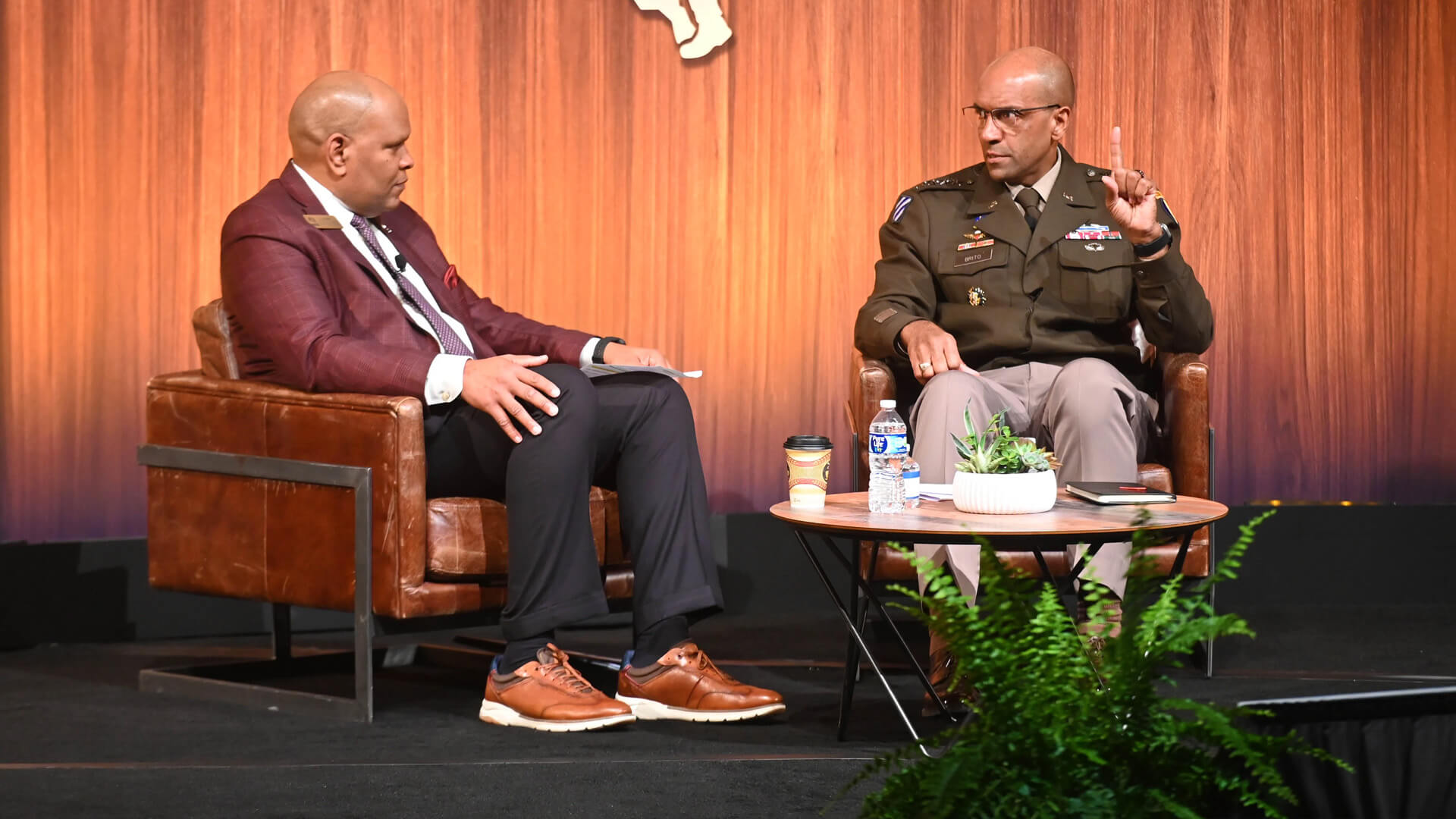Army Profession ‘Necessary’ to Service’s Success
Army Profession ‘Necessary’ to Service’s Success

Efforts to strengthen the Army profession are “necessary” to ensuring the service’s success in building a competent, lethal and cohesive force, the commanding general of Army Training and Doctrine Command said.
Part of Army Chief of Staff Gen. Randy George’s four focus areas, strengthening the Army profession is a “continual focus,” particularly as the Army moves from 20 years of counterinsurgency operations to preparing for large-scale combat operations, Gen. Gary Brito said March 28 during a fireside chat at the Association of the U.S. Army’s Global Force Symposium and Exposition in Huntsville, Alabama.
“We owe that to the moms and dads who allow their kids to join, and more importantly, we owe that to those who join our Army,” Brito said.
One key element to strengthening the Army profession is “zero compromise in warfighting capabilities,” Brito said, and “being really brilliant at the basics.”
Training and Doctrine Command’s goal is training “lethal warfighting soldiers” and delivering “competent, thinking leaders,” he said.
To do that, the command is looking at how it teaches, trains, educates and develops soldiers and leaders, Brito said. As an example, the Army must leverage technology and find innovative ways to connect with and deliver education to a younger generation of soldiers that is comfortable with technology. “Those soldiers who come in, … they require a level of delivery and engagement,” Brito said.
As the Army pursues a sweeping transformation, it “can’t separate that materiel modernization from the people component,” Brito said. “We’ll modernize and innovate quickly because we’re going to have technology taking off,” he said.
Ultimately, the Army will remain strong if it has “warfighters of high character, competence and commitment,” Brito said.

